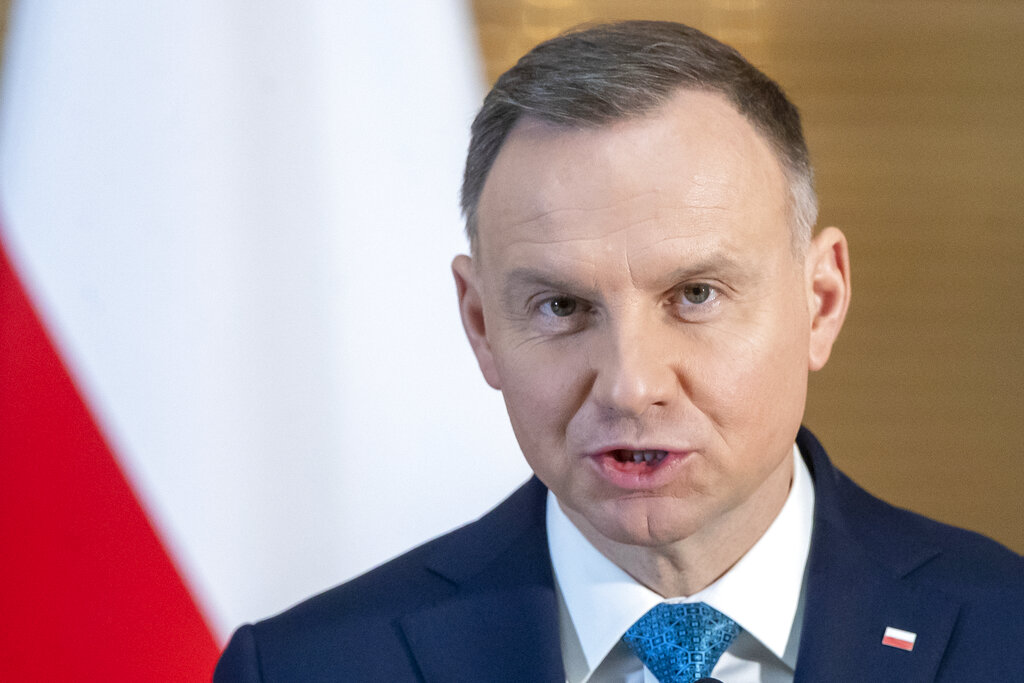Polish President Andrzej Duda said that he is counting on any Polish government that emerges after the election on Oct. 15 to respect the interests of the country, meaning “it would concentrate on the causes of the migration problems rather than the symptoms.”
Duda added that he hoped that “the situation in the Middle East will be a sobering element” for EU authorities.
He said that if another wave of migration sweeps across Europe, then Poland must repeat its case for defending the borders of the EU and helping countries to solve problems that lead to migration. He said he was convinced that the present government has been right to oppose the relocation of illegal migrants, as that simply spreads the problem rather than dealing with it.
“There was a world of difference between refugees from Ukraine and illegal migrants,” said Duda, who said most of the illegal migrants were economic migrants seeking a better life rather than true refugees.
He noted that most of the migrants stopped by Polish border guards after illegally crossing from Belarus, openly admitted that they wanted to go to Germany or other Western countries and had no intention of claiming asylum and staying in Poland.
The Polish president continued by saying that the EU has tried before to force Poland to take in relocated illegal migrants. The Polish conservative government, unlike the liberal one before it, refused to participate in the migrant quota scheme, as it saw no sense in creating detention camps for migrants who did not want to stay in Poland. In his view, to treat migrants in such a way would have been both inhumane and illegal.
Duda also complained about the way the EU had treated Poland over hosting Ukrainian refugees. Poland had expected it would receive the kind of help that was given to Turkey, which had to deal with Syrian refugees. The EU helped Turkey so that it would keep the Syrians from crossing EU borders but was not prepared to financially help Poland receive Ukrainian refugees.
According to the Polish head of state, Poland was “treated in such a way that we have little doubt that all these calls for European solidarity are fairy tales emanating from EU institutions.”
Poland continues to oppose the EU migration pact that was passed in the Council of the European Union. Hungary joined Poland in opposing the pact, while Slovakia, Czechia and Austria abstained. The pact will now be subject to negotiations with the European Parliament over the final version of the regulations required.
The present Polish government has decided to ask Polish voters to reject the EU migration pact in a referendum, which will be held simultaneously on Oct. 15, together with the general election.






